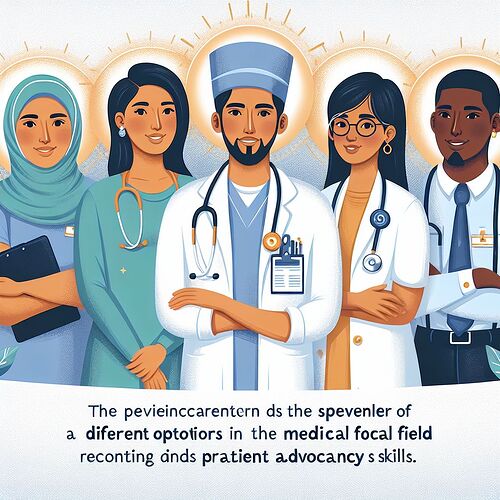Patient advocacy is a critical skill in the healthcare industry, involving the ability to support and speak on behalf of patients. For individuals possessing these skills, there are several career paths that can be both rewarding and impactful.
Here are some of the best jobs for individuals with patient advocacy skills:
-
Patient Advocate
Role: A patient advocate works directly with patients to ensure they receive the care and services they need. They help navigate the healthcare system, understand medical conditions, and communicate effectively with healthcare providers.
Example: Jane works as a patient advocate in a hospital, where she assists patients in understanding their treatment plans and ensures their concerns are addressed by the medical staff.
-
Social Worker
Role: Social workers in healthcare settings provide support to patients and their families, helping them cope with the emotional and practical challenges of illness. They advocate for patient needs and connect them with resources.
Example: John, a social worker in a cancer treatment center, helps patients access financial assistance and emotional support services, advocating for their needs throughout their treatment journey.
-
Case Manager
Role: Case managers coordinate care for patients, ensuring they receive comprehensive and continuous care. They work closely with healthcare providers, patients, and families to develop and implement care plans.
Example: Mary, a case manager at a rehabilitation facility, coordinates care plans for patients recovering from surgery, ensuring they receive the necessary therapies and follow-up care.
-
Healthcare Consultant
Role: Healthcare consultants analyze and improve healthcare systems and policies. They advocate for patient-centered care and work to implement changes that enhance patient experiences and outcomes.
Example: Tom, a healthcare consultant, works with hospitals to develop patient-centered care models that improve patient satisfaction and reduce readmission rates.
-
Nonprofit Organization Worker
Role: Working for nonprofit organizations, these individuals advocate for patient rights and access to healthcare. They may be involved in policy advocacy, community outreach, and providing direct support to patients.
Example: Susan, who works for a nonprofit organization, advocates for policy changes to improve access to mental health services for underserved communities.
-
Health Educator
Role: Health educators provide information and support to help individuals make informed health decisions. They advocate for patient education and work to improve health literacy.
Example: Lisa, a health educator, conducts workshops on chronic disease management, empowering patients to take control of their health through education and advocacy.
Each of these roles leverages patient advocacy skills to improve patient care and outcomes. Whether working directly with patients or influencing healthcare systems, individuals with these skills can make a significant impact in the healthcare field.
Did I miss anything? Add your comments below!
